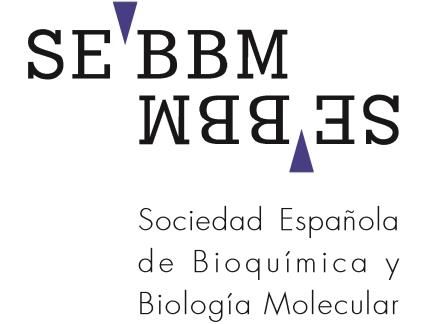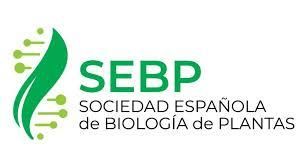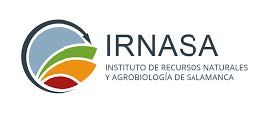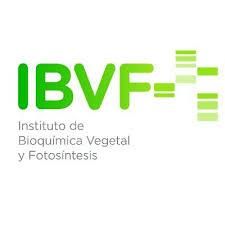Workshop: Plants under environmental stress:overcoming current climate change
Francisco Javier Cejudo, Professor of Biochemistry and Molecular Biology at Instituto de Bioquímica Vegetal y Fotosíntesis, Universidad de Sevilla-CSIC, Spain
Mónica Balsera, Tenured Scientist, CSIC, Instituto de Recursos Naturales y Agrobiología de Salamanca, Spain
José M. Estévez, Research Scientist at Fundación Instituto Leloir, Buenos Aires, Argentina. Centro de Biotecnología Vegetal (CBV), Facultad de Ciencias de la Vida, Universidad Andrés Bello, Santiago, Chile
-
finalizado
-
Desde: 05 Noviembre 2024
-
Hasta: 07 Noviembre 2024
-
Presencial
-
Sede Antonio Machado de Baeza
-
Investigadora
-
Inglés
-
20 Horas
-
400 euros
-
35
Presentación y objetivos
WORKSHOP DESCRIPTION
The harmful effects of global warming on the environment and human lifestyle are becoming evident during the last few years so that the term “climate emergency” has gained social popularity to describe the environmental risks that humanity is currently facing. Global warming is produced by the anthropogenic increase of emissions of gases such as CO2 and methane, which have greenhouse effect thereby increasing Earth temperature. It is estimated that atmospheric CO2 concentration has almost doubled during the last 150 years since the pre-industrial era due to an economy essentially based on fossil fuels, which has increased global temperature around 1 ºC. Frequent extreme climate episodes including heatwaves, torrential rains, or extended periods of drought, among others, are placing humanity under an unprecedented challenge. A direct approach to address this challenge is the reduction of the use of fossil fuels with the aim of lowering emissions of greenhouse effect gases. However, this implies deep economic, industrial, and cultural changes, which are neither easy nor rapid to implement. Indeed, the Intergovernmental Panel on Climate Change (IPCC) estimates that CO2 must reach net zero emissions by 2050 [1], yet this long period could make some of the negative effects of global warming irreversible. Thus, the approach of lowering emissions of greenhouse effect gases needs to be complemented with strategies to decrease the concentration of CO2 already accumulated in the atmosphere. Current technologies for trapping atmospheric CO2 are inefficient, expensive, and only provide partial and delayed solutions to this complex problem. Current models estimate the need of 2-4 times improvement in the efficiency of carbon capture technologies to obtain significant results from this approach [2]. Therefore, ecosystem-based biotechnological solutions are emerging as a promising possibility. By using sun light energy to fix atmospheric CO2, photosynthesis is the primary source of organic material into the biosphere hence being essential for life on Earth. Thus, strategies to improve photosynthesis efficiency by both terrestrial and aquatic photosynthetic organisms, in combination with the availability of molecular and genetic tools to improve crop acclimation to the stressful environmental conditions triggered by global warming, are promising alternatives to address the current climate crisis [3, 4]. The aim of the workshop “Plants under environmental stress: overcoming current climate challenges”, is to bring together top national and international scientists in the fields of photosynthesis and the biotechnological use of photosynthetic organisms to discuss ecosystem-based strategies to address global warming challenges. In this workshop we will also pay attention to strategies to improve plant responses to environmental stresses affecting crop productivity.
Photosynthesis, a biological process of atmospheric CO2 fixation
The evolution of oxygenic photosynthesis by cyanobacteria, the ancestors of plant and algal chloroplasts, around 3.5 billion years ago, provoked the change of a reducing to an oxidizing atmosphere and triggered the evolution of aerobic metabolism so that life on Earth, as we know it, depends on this process. In brief, oxygenic photosynthesis uses the energy of sun light to impulse the transport of electrons derived from water photolysis through a transport chain formed by complexes of proteins, pigments and other cofactors. The final acceptor of these electrons is ferredoxin (Fdx), which can then transfer them to NADP+ to generate NADPH. The photosynthetic electron transport chain promotes the accumulation of protons at the thylakoid lumen, hence generating an electrochemical proton gradient that drives the synthesis of ATP. Reduced Fdx, NADPH and ATP constitute the sources of metabolically useful energy that supports chloroplast biosynthetic metabolism, notably CO2 fixation to produce sugars by the Calvin-Benson cycle. In addition, water photolysis delivers molecular oxygen to the atmosphere. Nevertheless, the transport of electrons in the presence of oxygen inevitably produces reactive oxygen species (ROS). If over-accumulated, as occurs under stressful environmental conditions, the high reactivity of ROS with proteins, lipids and nucleic acids may cause damage to cell structures and, eventually, cell death. However, ROS have also an important signaling function, which is essential for plant development and acclimation to the environment. Therefore, increasing our current knowledge of ROS production and scavenging, their signaling function and the mechanisms of photoprotection of the photosynthetic machinery provide new approaches for improving photosynthesis efficiency and crop productivity, hence an exciting field of research for addressing current climate challenges.
The impact of global warming on agriculture, and of agriculture on global warming
Since its invention in the Neolithic era, about 10.000 years ago, agriculture is the basis of human nutrition, thus sustaining our survival on Earth. Agriculture provides staple food for animal breeding and is the source of crops such as cereals providing about 60% of the calories for most human populations worldwide. Hence, the deleterious effects of global warming on agriculture are expected to have dramatic effects. However, it is worth considering that agriculture also contributes to global warming in different ways. It is estimated that agricultural activities are responsible of 20-25% of total emissions of greenhouse effect gases, including methane and nitrous oxide in addition to CO2. Nitrogen fertilization, which together with the generation of semi-dwarf cereals, were responsible of the impressive increases of agronomic yields brought about by the green revolution in the 1960s, has also negative effects on global warming. It is estimated that the production of nitrogen fertilizers contributes up to 2% of CO2 emissions, not to mention the deleterious effects caused to different ecosystems by the over-accumulation of nitrate and nitrite. Therefore, improving the understanding of the mechanisms underlying the development and growth of plant roots, and the mechanisms of inorganic nitrogen assimilation by plants and algae, are essential for facilitating new strategies for more efficient nitrogen management, healthier land and aquatic ecosystems, and the generation of plants with better response to different environmental stresses. These goals, which are key challenges that plant science must address towards a more sustainable and efficient agriculture, will be discussed in the workshop.
Biotechnological use of plants and algae
Technologies developed to capture atmospheric CO2 and its storage underground geological formations are still inefficient and provide only a temporal solution to the problem of global warming. Thus, strategies based on biological fixation of CO2, which have the additional advantage of improving the formation of useful organic material, are currently feasible alternatives to address global warming [4]. However, Rubisco, the enzyme that catalyzes biological CO2 fixation, evolved in a low-oxygen atmosphere so that it displays oxygenase in addition to the carboxylase activity, thereby making photosynthetic fixation of CO2 a rather inefficient process in the present high-oxygen atmosphere. Therefore, an important challenge in photosynthesis research is the design of more efficient forms of Rubisco that significantly improve CO2 fixation efficiency. Furthermore, the availability of the genome sequences of the most important crops, the advance in massive analyses such as proteomics and metabolomics, and the improvement of genetic tools, such as gene editing with CRISPR/Cas technologies, allow to design new strategies to improve crop productivity under changing climatic conditions [5]. In this regard, very relevant objectives include the generation of crops overcoming the increase pathogen susceptibility caused by global warming and resistant to abiotic stresses such as drought, salinity, and temperature. Understanding root development and the mechanisms of nitrogen assimilation may lead to better tools for land management with the aim of diminishing the use of nitrogen fertilizers which have the side effect of being highly contaminant. Finally, the contribution of photosynthetic microorganisms (cyanobacteria and algae) to the health of aquatic ecosystems, as well as the use of these organisms to produce biomass and molecules of industrial interest, makes biotechnology-based strategies very attractive to address the challenges of climate change.
IPCC (2022) Climate change 2022: Impacts, adaptation and vulnerability
Schweitzer H et al. (2021) Innovating carbon-capture biotechnologies through ecosystem-inspired solutions. One Earth 4: 49-59
Hirt H et al. (2023) PlantAct! – how to tackle the climate crisis. Trends Plant Sci 28: 537-543
Weigmann K (2019) Fixing carbon. EMBO Rep. 20: e47580
Bailey-Serres J et al. (2019) Genetic strategies for improving crop yields. Nature 575: 109-118
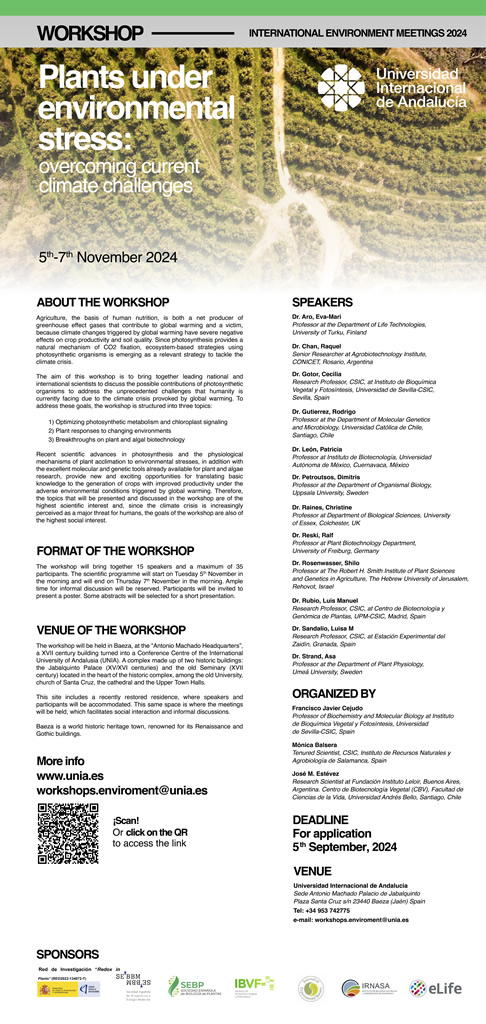
Monday, November 4th
20:30. Get together cocktail at Palacio de Jabalquinto
Tuesday, November 5th
9:00 - 9:15. Workshop presentation
SESSION 1. Optimizing photosynthetic metabolism and chloroplast signaling
Chair: J.M. Estévez
9:15-9:45. E-M. Aro (University of Turku, Finland)
Title: Thylakoid photosynthetic machinery as a sensor of environmental stress
9:45-10:15. D. Petroutsos (Department of Organismal Biology, Uppsala University, Sweden)
Title: Regulation of carbon capture and partitioning in green microalgae
10:15 - 10:45. F.J. Cejudo (Instituto de Bioquímica Vegetal y Fotosíntesis, US-CSIC, Sevilla, Spain)
Title: Redox regulation of chloroplast photosynthetic metabolism. An update
10:45-11:15. Coffee break
11:15-11:45. M. Zurbriggen (Institute of Synthetic Biology, Heinrich Heine University, Dusseldorf, Germany)
Title: Synthetic and reconstruction biology approaches for studying and controlling cellular processes in plants: The case of optogenetics
11:45-12:15. M. Balsera (Instituto de Recursos Naturales y Agrobiología, CSIC, Salamanca, Spain)
Title: Exploring the interplay of protein redox state, environmental conditions, and photosynthesis: Implications for adaptation and acclimation
12:15-12:35. A.J. Serrato (Estación Experimental del Zaidín, CSIC, Granada, Spain)
Title: The NADH dehydrogenase-like complex plays a pivotal role in the integration of photosynthesis and redox regulation within chloroplasts
12:35-12:55. R.M. Rivero (CEBAS, CSIC, Murcia, Spain)
Title: Melatonin interacts with Nitric Oxide and ROS for the control of PSII/PSI dynamics under single and combined abiotic stresses
12:55-13:15. B. Naranjo (Instituto de Bioquímica Vegetal y Fotosíntesis, US-CSIC, Sevilla, Spain)
Title: The interplay between different photosynthetic electron transport pathways as a key for light acclimation in plants
13:30-15:00. Lunch
SESSION 1 (cont.). Optimizing photosynthetic metabolism and chloroplast signaling
Chair: A.J. Serrato
15:00-15:30. A. Strand (Department of Plant Physiology, Umea University, Sweden)
Title: The interplay between CDK8 and CAMTA3 during plant stress responses
15:30-16:00. Patricia León (Instituto de Biotecnología, Universidad Autónoma de México, México)
Title: Plastid to nucleus communication, an essential element for plant development and productivity
16:00-16:20. P. Pulido (Centro Nacional de Biotecnología, CSIC, Madrid, Spain)
Title: Organellar crosstalk under proteostatic stress in plants
16:20-16:40. Y. Izquierdo (Centro Nacional de Biotecnología, CSIC, Madrid, Spain)
Title: New insights into mitochondrial stress responses
16:40-17:00. E. Rintamaki (University of Turku, Finland)
Title: Chloroplast retrograde signaling under light stress
17:00-17:20. J.M. Pérez-Ruiz (Instituto de Bioquímica Vegetal y Fotosíntesis, US-CSIC, Sevilla, Spain)
Title: The function of plastid redox systems at early stages of plant development
17:20-19:30. Coffee break and Poster session
20:30. Dinner
Wednesday, November 6th
SESSION 2. Plant responses to changing environments
Chair: M. Balsera
9:00-9:30. L.M. Sandalio (Estación Experimental del Zaidín, CSIC, Granada, Spain)
Title: Redox dynamics in plant stress and signaling: role of peroxisomes
9:30-10:00. C. Gotor (Instituto de Bioquímica Vegetal y Fotosíntesis, US-CSIC, Sevilla, Spain)
Title: Deciphering the molecular mechanisms underlying the sulfide-signaling of plant stress tolerance
10:00-10:20. A. Díaz Espejo (Instituto de Recursos Naturales y Agrobiología, CSIC, Sevilla, Spain)
Title: Adapting to adverse environments: evolutionary insights from overcoming challenges
10:20-10:40. M. Claros (Instituto de Hortofruticultura Subtropical y Mediterránea, UMA-CSIC, Málaga, Spain)
Title: Integrative bioinformatics to address salt stress in olive and citrus: too many branches for a bunch of data
10:40-11:00. I. García (Instituto de Bioquímica Vegetal y Fotosíntesis, US-CSIC, Sevilla, Spain)
Title: Functional analysis of HCN in the adaptative response of plants to pathogens
11:00-11:30. Coffee break
11:30-12:00. J.M. Estévez (Instituto Leloir, Buenos Aires, Argentina)
Title: Understanding signaling pathways governing the polar development of root hairs in low-temperature, nutrient-deficient environments
12:00-12:30. R. Gutiérrez (Department of Molecular Genetics & Microbiology, Universidad Católica de Chile)
Title: Dissecting nitrate responses in time and space
12:30-12:40. J. C. del Pozo (Centro de Biotecnología y Genómica de Plantas, UPM-CSIC, Madrid, Spain)
Title: Enhancing plant resilience to heat stress: lessons learned from temperature gradients in the root ecosystem
12:40-13:00. R. León Morcillo (Instituto de Hortofruticultura Subtropical y Mediterránea, UMA-CSIC, Málaga, Spain)
Title: A small signal peptide regulates root hair development in response to fungal ethylene emissions
13:00-13:20. M. Becana (Estación Experimental Aula Dei, CSIC, Zaragoza, Spain)
Title: The hemoglobins of legumes
13:30-15:00. Lunch
SESSION 3. Breakthroughs in Plant and algal biotechnology
Chair: M. Romero Puertas
15:00-15:30. L.M. Rubio (Centro de Biotecnología y Genómica de Plantas, CSIC-UPM, Madrid)
Title: Bioengineering nitrogen fixation in plants
15:30-16:00. C. Raines (Essex University, UK)
Title: Improving photosynthesis to enable sustainable crop yields
16:00-16:20. S. Gómez (CIALE, Universidad de Salamanca, Spain)
Title: TGA transcription factors are crucial for ROS/RNS balance in the root stem cell niche
16:20-16:40. J. León Ramos (Instituto de Biología Molecular y Celular de Plantas, UPV-CSIC, Valencia, Spain)
Title: VQ proteins: a link between nitro-oxidative stress, liquid-liquid phase separation, and ER stress.
16:40-17:00. M. Martínez (Centro de Biotecnología y Genómica de Plantas, CSIC-UPM, Madrid)
Title: Dissecting molecular mechanisms involved in the plant response to phytophagous mites
17:00-17:20. S. De Brassi (CEBAS, CSIC, Murcia, Spain)
Title: New role for thioredoxins in plants: implication of AtTRXo1 in protein persulfidation
17:20-19:30. Coffee break and Poster session
20:30. Dinner
Thursday, November 7th
SESSION 3 (cont.) Breakthroughs in plant and algal biotechnology
Chair: F.J. Cejudo
9:00-9:30. R. Reski (Department of Plant Biotechnology, Freiburg University, Germany)
Title: Moss biotechnology
9:30-10:00. R. Chan (Agrobiotechnology Institute, CONICET, Argentina)
Title: From the biomolecule to the field. Unrevealing the molecular mechanisms taking place when HaHB4 and HaHB11 confer beneficial phenotypes to crops
10:00-10:20. I. Couso (Instituto de Bioquímica Vegetal y Fotosíntesis, US-CSIC, Sevilla, Spain)
Title: The emerging role of inositol polyphosphates in the regulation of stress conditions in green microalgae
10:20-10:40. I. Florez Sarasa (Centro de Investigación en Agrigenómica, CSIC, Barcelona, Spain)
Title: Altering mitochondrial respiration for improving tomato productivity and fruit quality under climate change
10:40-11:10. (On-line) S. Rossenwasser (The Robert H. Smith Institute of Plant Sciences and Genetics in Agriculture, Rehovot, Israel)
Title: Monitoring photosynthetically-derived oxidative signals
11:30. Bus departure to Madrid airport
Francisco Javier Cejudo, Professor of Biochemistry and Molecular Biology at Instituto de Bioquímica Vegetal y Fotosíntesis, Universidad de Sevilla-CSIC, Spain
Mónica Balsera, Tenured Scientist, CSIC, Instituto de Recursos Naturales y Agrobiología de Salamanca, Spain
José M. Estévez, Research Scientist at Fundación Instituto Leloir, Buenos Aires, Argentina. Centro de Biotecnología Vegetal (CBV), Facultad de Ciencias de la Vida, Universidad Andrés Bello, Santiago, Chile
Dr. Aro, Eva-Mari, Professor at the Department of Life Technologies, University of Turku, Finland
Dr. Chan, Raquel, Senior Researcher at Agrobiotechnology Institute, CONICET, Rosario, Argentina
Dr. Gotor, Cecilia, Research Professor, CSIC, at Instituto de Bioquímica Vegetal y Fotosíntesis, Universidad de Sevilla-CSIC, Sevilla, Spain
Dr. Gutierrez, Rodrigo, Professor at the Department of Molecular Genetics and Microbiology, Universidad Católica de Chile, Santiago, Chile
Dr. León, Patricia, Professor at Instituto de Biotecnología, Universidad Autónoma de México, Cuernavaca, México
Dr. Petroutsos, Dimitris, Professor at the Department of Organismal Biology, Uppsala University, Sweden
Dr. Raines, Christine, Professor at Department of Biological Sciences, University of Essex, Colchester, UK
Dr. Reski, Ralf, Professor at Plant Biotechnology Department, University of Freiburg, Germany
Dr. Rosenwasser, Shilo, Professor at The Robert H. Smith Institute of Plant Sciences and Genetics in Agriculture, The Hebrew University of Jerusalem, Rehovot, Israel
Dr. Rubio, Luis Manuel, Research Professor, CSIC, at Centro de Biotecnología y Genómica de Plantas, UPM-CSIC, Madrid, Spain
Dr. Sandalio, Luisa M, Research Professor, CSIC, at Estación Experimental del Zaidían, Granada, Spain
Dr. Strand, Asa, Professor at the Department of Plant Physiology, Umeå University, Sweden
Dr. Zurbriggen, Matias, Institute of Synthetic Biology, Heinrich Heine University, Dusseldorf, Germany
The goal of this workshop is to improve networking among scientists interested in redox regulation of photosynthetic metabolism, the mechanisms of photoprotection and chloroplast signaling in plant and algae, including biotechnological approaches. The workshop will provide the opportunity for early-stage researchers to interact with leading national and international scientists to: (i) identify new topics and approaches to address complex issues in the field, (ii) improve translation of basic science to biotechnological applications to tackle global warming, (iii) facilitate new opportunities of financial support from European and international agencies. "See application guidelines".
FORMATE OF THE WORKSHOP:
The workshop will bring together 15 speakers and a maximum of 35 participants. The scientific programme will start on Tuesday 5th November in the morning and will end on Thursday 7th November in the morning. Ample time for informal discussion will be reserved. Participants will be invited to present a poster. Some abstracts will be selected for a short presentation.
VENUE OF THE WORKSHOP:
The workshop will be held in Baeza, at the “Antonio Machado Headquarters”, a XVII century building turned into a Conference Centre of the International University of Andalusia (UNIA). A complex made up of two historic buildings: the Jabalquinto Palace (XV/XVI centuries) and the old Seminary (XVII century) located in the heart of the historic complex, among the old University, church of Santa Cruz, the cathedral and the Upper Town Halls.
This site includes a recently restored residence, where speakers and participants will be accommodated. This same space is where the meetings will be held, which facilitates social interaction and informal discussions.
Baeza is a world historic heritage town, renowned for its Renaissance and Gothic buildings.
We recommend all participants to stay in the University Residence, which is located in the same space where the Meetings will take place, to facilitate social interaction and informal discussions.
The accommodation in the University Residence is in shared double rooms, as there are not single rooms: €20/day. To make the reservation and the corresponding payment you must be previously registered for the workshop and then contact:
WORKSHOP REGISTRATION:
A) Applicants must complete an application form and submit it, along with:
- A brief C.V.
- A summary of the current research work of the candidate.
In case of presenting a poster, a summary of the poster of no more than one page, with the title, authorship, research center/institution/university, address and a summary of the communication.
See section "presentation of panels and posters”.
SEE LINK TO:
Application form (odt)
Application form (doc)*:
En cumplimiento del Reglamento General de Protección de Datos (Reglamento (UE) 2016/679), se le informa que los datos personales que se puedan recopilar se incorporarán y procesarán en algunos de los archivos de la Universidad Internacional de Andalucía (UNIA); los datos pueden divulgarse según lo previsto por la ley.
La autoridad responsable de los datos es: UNIA: Secretaría General (Secretario General). C / Américo Vespucio nº 2, Isla de la Cartuja. 41092 - SEVILLA, ESPAÑA.
Puede ejercer sus derechos de acceso, rectificación, eliminación y oposición contactando por escrito con la dirección mencionada anteriormente, a la atención del Delegado de Protección de Datos, o enviando un correo electrónico a
B) Send the completed Application Form (doc/odt) and the attached documents as separate text files and in a single email message, to
Selected applicants (with or without poster) will be notified directly. From that moment on, they must pay the corresponding registration fees*.
WORKSHOP FEES 2024:
Registration: 400,00 € (breakfast, lunch, coffe-breaks and dinner included)
Payment method: bank transfer to ‘La Caixa’
IBAN (international bank account number): ES78 21009166752200074348
SWIFT (BIC): CAIXESBBXXX
Registration fees deadline 5 September 2024
Selected applicants must indicate their full name and code number (it will appear in the webpage) in the bank transfer. After completing your payment by bank transfer, a proof of payment must be sent to:
The bank charges generated by the bank transfer will be paid by the applicants/attendees.
WORKSHOP panels/posters guidelines:
The scheduled dates for the presentation of panels/posters are:
A. Deadline to present the complete panels in digital format 5 SEPTEMBER 2024.
Presentation of the proposal: through the registration form in the Worhshop.
Shipping address for panels/posters:
o For the oral presentation of posters it is essential to have formalized registration and payment of the Workshop.
o The co-director of the Workshop will indicate and assign the session in which to present the work.
o The organization will certify the effective presentation of each panel/poster during the Workshop.
o Each author individually or collectively may present a maximum of 2 panels.
o Researchers may display their panel in the campus facilities. To do this, they must bring their work printed in DIN A0 vertical format (84.1 x 118.9 cm) and arrange it in the provided fastening systems.
Panel/poster contents:
• Title: Arial bold 14 points.
• Subtitle (if applicable).
• Authorship (individual or collective).
• Keywords: maximum 4.
• Presentation / Summary of content: 120 words.
• Methodology: 100 words.
• Description and contents: through text and graphics.
• Conclusions: maximum 100 words
• Sources and essential bibliography.
• Format: to transfer digitally DIN A4; PDF. Type: Arial. Body: minimum 9 and maximum 12 points.
Matrícula y becas
Situación actual:
-
finalizado
Conoce nuestro propio programa de becas y consulta en las bases de la convocatoria los casos donde la beca contempla exención de precios o una ayuda económica.
Los estudios de formación continua son enseñanzas de ampliación, especialización, perfeccionamiento y/o actualización de conocimientos destinados a cubrir áreas temáticas concretas de interés, con unos objetivos bien definidos, que permiten responder de una forma ágil y eficaz a las distintas demandas de conocimiento de la sociedad.
No están sujetos a requisitos de acceso.
Programa de becas y ayudas de la Universidad Internacional de Andalucía.
La Universidad Internacional de Andalucía, como complemento a las convocatorias de la Administración General del Estado y de la Comunidad Autónoma, en el ejercicio de sus competencias y de acuerdo con su disponibilidad presupuestaria, establecerá para cada curso académico un programa de becas y ayudas al estudio.
Las modalidades y cuantías de las becas y ayudas, las condiciones académicas y económicas que hayan de reunir los candidatos, el procedimiento de gestión, así como los supuestos de incompatibilidad, revocación y reintegro y cuantos requisitos, condiciones socio-económicas u otros factores sean precisos para el acceso a las citadas becas y ayudas se regularán por su propia normativa que, en todo caso, debe asegurar los principios de igualdad y equidad, atendiendo a la promoción del rendimiento académico.
Para cualquier incidencia técnica durante su automatrícula, puede contactar con la dirección de correo electrónico:
Enlace al Manual de ayuda a la automatrícula
Los precios públicos a satisfacer en la matrícula serán determinados en la convocatoria de la actividad ofertada.
La eficacia de la matrícula formalizada y de los actos administrativos que de ella pudieran derivarse quedará demorada hasta tanto no se produzca el pago de la totalidad de los precios públicos establecidos. El impago de la misma implicará el desistimiento de la solicitud de matrícula.
La Universidad Internacional de Andalucía acreditará los logros académicos obtenidos por sus estudiantes mediante la emisión del correspondiente certificado de asistencia o diploma de aprovechamiento, siempre que el estudiante haya asistido al 80% de las clases. El certificado de asistencia se expedirá en aquellos casos en que el programa no contemple ninguna evaluación o el/la alumno/a no la haya superado. Si el programa cuenta con evaluación y el/la alumno/a la supera, recibirá un diploma de aprovechamiento con la calificación obtenida. Estos documentos se emitirán una vez cumpla el alumnado con los requisitos establecidos en la convocatoria para su expedición.

